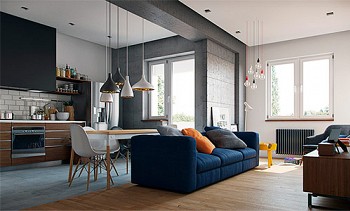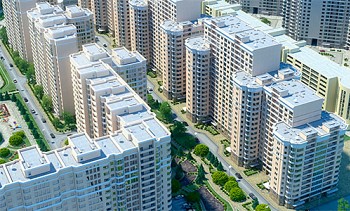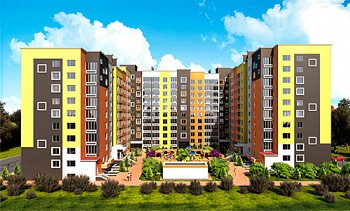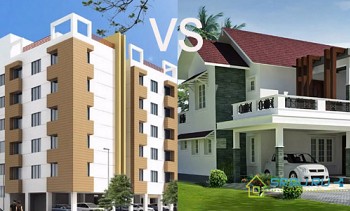Which apartment is better to buy - a resale or a new building?
Become the first owners of the keys to a new apartment, in no hurry to choose a floor and a view from the window, plan and implement a new one instead of remodeling the old one - few will give up these advantages when choosing a home. New building or resale - which is better? Such a question seems uninitiated simple, and the answer to it is obvious - the new is always better, more beautiful and comfortable than the old. But buyers are often faced with tight deadlines and financial constraints.
And then other differences come to the fore: the cost of a square meter; mortgage terms; the timing and nuances of registering an apartment as a property; legal status and possible risks. Only with a detailed consideration and sober weighing of all factors will the solution turn out to be correct. To help readers take it quickly, consider the key differences and features of new buildings and secondary housing.
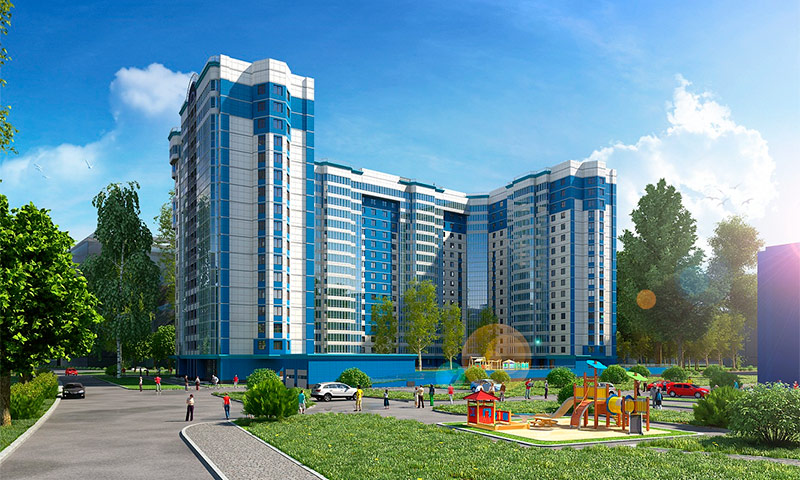
Content:
Which is cheaper: a resale or a new building?
It is believed that the housing under construction is a priori cheaper than the finished one. Buyers act as co-investors - having invested at the stage of excavation, they receive a substantial discount. And this is true - long months, and more often, years of expectation, become the reckoning for low cost. However, each region has its own rules that the market dictates. If you study the statistics, you can see that the lower cost of the new building is not an axiom at all.
Today, Moscow, the Leningrad region and Nizhny Novgorod are playing against the rules, selling walls more expensive than finished apartments. Chelyabinsk, Rostov-on-Don and Samara honestly demonstrate a tangible difference in favor of new buildings. On average, across the country, the cost per square meter in both segments is gradually being compared, although the secondary is still more expensive.
This violation of the rules is easy to explain. As soon as the developer draws up newly-rented apartments into ownership, new housing becomes secondary. Although a very short period of time has passed from the moment of acceptance by the State Commission, the processing of the transaction will be different. Instead of equity or transfer of claim, the seller and the buyer will be able to sign a regular contract of sale of real estate. The high cost of such sought-after facilities and affects the market, equalizing statistics in both segments.
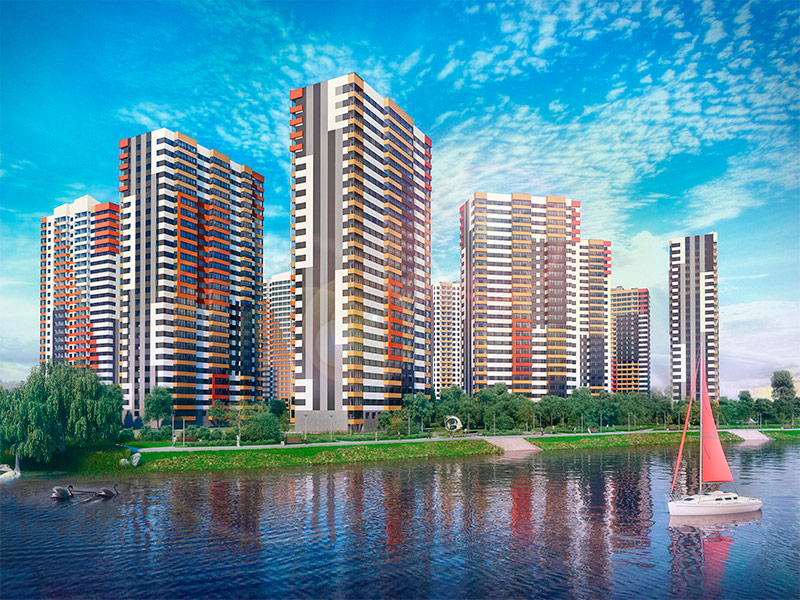
The cheapest cost is square meters, which exist only on paper so far - here you will have to wait not only for the registration of the property, but also for the erection of the walls, while it is impossible to get firm guarantees that the construction will go on schedule and will not freeze at any stage. You can only rely on your own intuition, and on the positive story of the selected developer.
The closer to the acceptance of the building by the State Commission, the more actively prices rise. By the time of settlement, they will be comparable to the secondary market, despite the fact that from the delivery of keys to obtaining a certificate of ownership can take from 6 months to 2 years.
Mortgage: what to choose with an approved loan?
The preferences of credit institutions are obvious and can easily tip the scales towards new buildings. First of all, the interest rate compares favorably - in this case, the difference will be from 0.5 to 1%. Given the long-term mortgage payments, the difference of only 1 percent eventually results in a large amount.
The collection and consideration of documents will be easier - buyers will only need to provide an agreement of shared participation with the developer.The approval procedure itself will turn out to be faster - after all, there will be many such transactions with an accredited developer in the selected bank. The buyer has also been relieved of the risks of a transaction disruption due to an approved mortgage - there will not be several owners, one of whom will suddenly decide to replay, or negative decisions of the guardianship authorities. With a large number of offers, the seller will not choose another buyer, but will patiently wait for all approvals and approvals.

With a mortgage purchase on the secondary market, the borrower will have to carefully study the previous purchase history, remembering how banks do not like transactions with minor owners of shares and with the existing attraction of maternity capital. Although a thorough check by the bank of the entire chain of previous owners insures the buyer himself, not all bona fide sellers will agree to wait for the final decision and approval, and provide the requested additional documents. Really profitable options may well go to the buyer with free money.
Unlike a regular seller, the representatives of the developer will be able to correctly and accurately advise on issues of a mortgage purchase at the first appeal, based on the actual experience of cooperation with the bank. Most often, customers will be offered free services of specialists who will accompany and guide the client when registering a mortgage.
Legal risks
In recent years, many efforts have been made to legally secure buyers. Years of the wild market are behind, and the procedure for state registration of the transaction excludes most of the possible fraudulent schemes. But fully guaranteeing security is still not possible.
A significant minus of the secondary apartments is a long history of ownership. A binding rule applies here - if at one stage the transaction is recognized as illegitimate, then all subsequent transfers from owner to owner also turn out to be invalid. As a result, the ultimate owner always suffers.
The greatest risk is the transfer of law by will - to prove that there are no other applicants for real estate is impossible. Most of all, buyers do not like a fresh inheritance by will, they are suspicious of donations, they avoid options where the annuity contract appeared - after all, all of the above can be challenged in court.
Similar risks in the case of new buildings are reduced to zero, however, their pitfalls are hidden here. Basically, buyers suffer from two ills - frozen construction with a lack of funding and undetected problems with documentation. If there is no buyer’s fault in the sudden financial difficulties of investors, and sad experience indicates the possible ruin of even large and previously successful developers, then in the second case laziness or legal illiteracy becomes the reason.
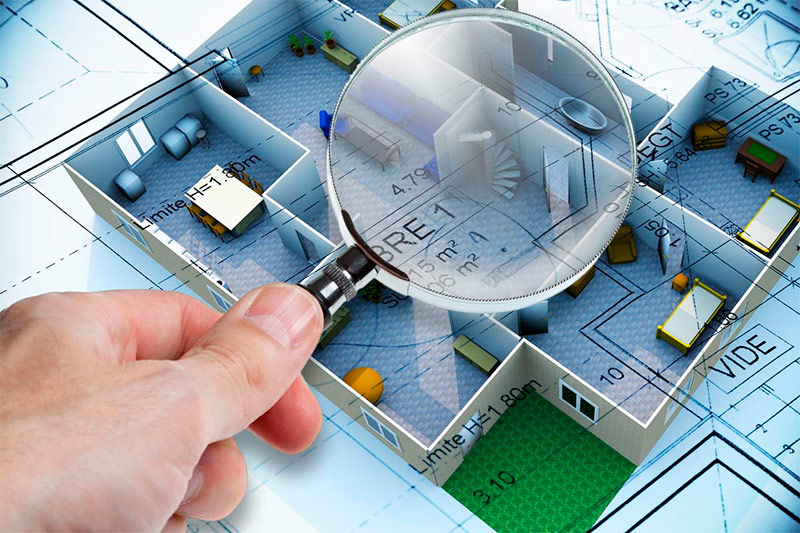
All documentation should be provided to customers upon request, and a conscientious seller will willingly and in detail tell about all the permits received - from a lease or purchase of land to the latest approvals from government authorities. Such documents should be posted on the official website of the facility.
The gullible co-investors and equity holders suffer the most, succumbing to the belief that permissions will be issued retroactively. Today, the standards and requirements are very high, and any violations in the construction and permits can easily become a reason for freezing the facility.
State control in this area is so strong that the successful completion of the construction will not guarantee a happy housewarming. Already finished and populated buildings with gross violations and falsifications with papers can be recognized as self-building and demolished.
What you need to know about new buildings
High ceilings, spacious halls, modern finishing materials and durable monolithic structures - all this attract new buyers. But this is far from the only thing you should know about them.The harsh and uncomfortable realities can be separated from the delights of the advertising brochure for new settlers.
1. Construction site instead of the yard. When erecting several lines or buildings instead of the promised lawns and children's towns under the windows, construction work may continue for several years. This should be considered by buyers of the first stage of large residential complexes.
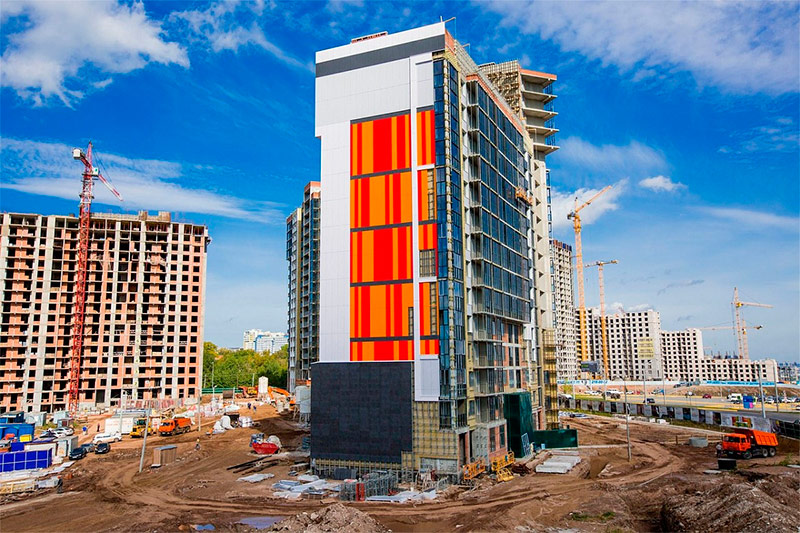
2. Many prefer new homes to embody the most daring design ideas. However, one has to remember that fantasy without borders is possible only in monolithic structures, brick and panel buildings will require mandatory coordination of planned redevelopments, and some of their options will be impossible.
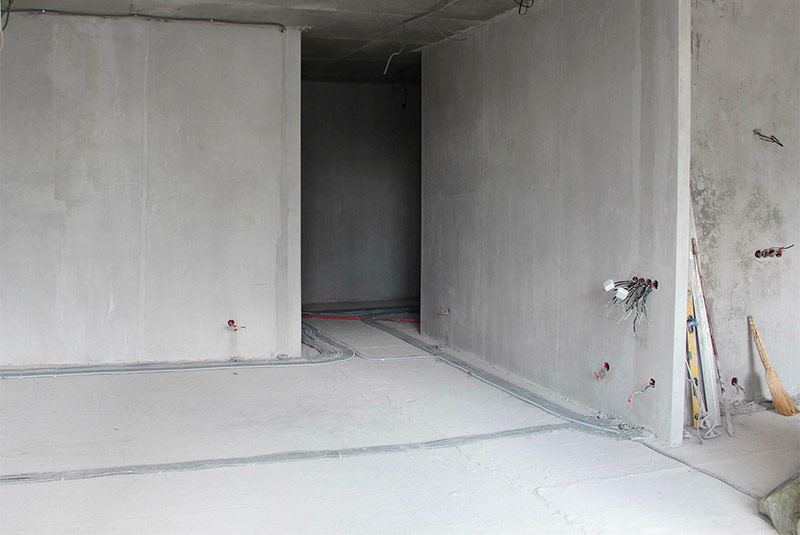
3. With or without trim? When thinking about which apartment is better to buy, a resale or a new building, do not forget that a significant part is rented out without finishing, and this is not at all about tiles or wallpaper. The buyer will literally be met by bare concrete walls, floors and streams. Investments in bringing such a “box” to a residential look will require significant, because all the finishing work from wiring to plaster will fall on the shoulders of the new settlers.
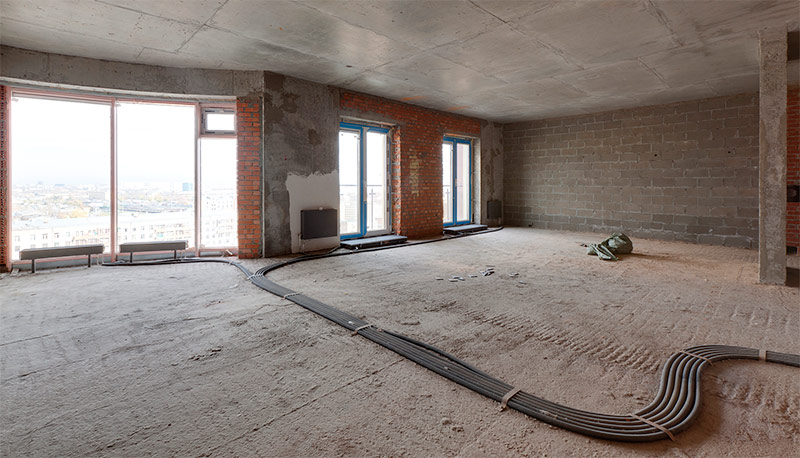
In which case you can buy a new building, and in which to give preference to secondary housing
There are circumstances that go against our plans and dreams. When choosing, a lot will depend not only on the objective pluses and minuses of new buildings and resales, but also on the existing conditions and capabilities of the buyer.

Urgent need to move into the apartment
What kind of housing is better to buy, a resale or a new building if you need an apartment today? Indeed, in this case time is running out, financial opportunities are limited, and people and things are in dire need of a new roof over their heads. If the purchase becomes the only housing, a new building will have to be abandoned. A very rare object can boast of complete coincidence of the indicated deadlines for delivery and settlement with the real ones, and the planned relocation and housewarming, even under successful circumstances, can be delayed for a year.
Housing investment
The sharp fluctuations in the national currency forced many to turn to real estate as a way to preserve, or even increase their savings. Here you should not be tempted by attractive prices in the old fund. Today, the buildings of the 60-80s are already considered obsolete, and in the future they will only become cheaper. Those wishing to save money would be wiser to look at the construction in remote, but promising areas, checking inexpensive options with 5-10 year urban development plans. Along with the development of communications and transport networks, the cost of such facilities will increase.
Apartment for rent
The opinions of realtors regarding the choice of an apartment for rental are not united. Most experts believe that it is better to invest in the old fund in areas with developed infrastructure - after all, such housing finds its tenant as quickly as possible. Here, the footage and ceiling height are not very important. But some are sure that times of poor quality are becoming a thing of the past, and a modern tenant will prefer the remoteness and lack of existing infrastructure to high-quality and modern construction. It is important here not to go too far, choosing a middle ground - otherwise you can invest in a real ghetto, where whole porches and buildings will be put up for rent.
No need for immediate instillation
If the apartment is purchased for yourself, but there is no need for immediate settlement, then the ideal solution would be a new building with a free layout. Here you can plan the location of the bedrooms, think over additional technical rooms, choose a floor. Finishing work will take place simultaneously throughout the house, and by the time the new settlers move, building noises from neighbors will no longer bother.

